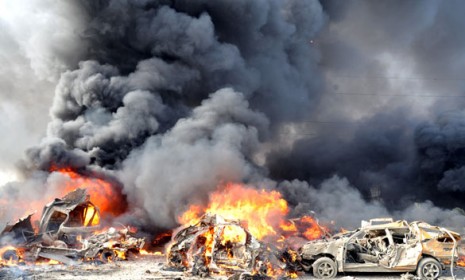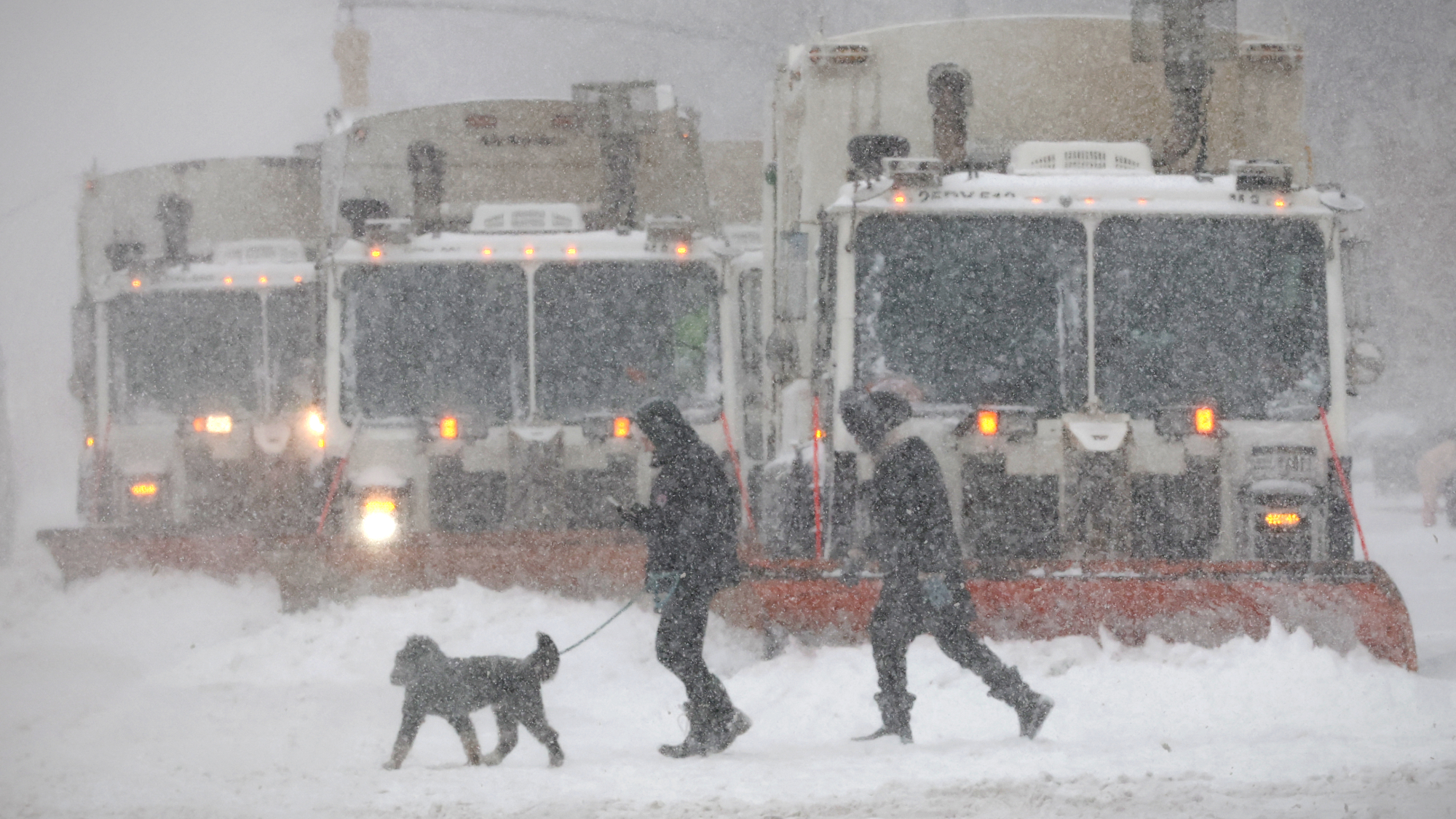The Syria car bombings: 3 repercussions
Horrific, deadly blasts trigger renewed protests and push an already shaky ceasefire deal to the brink of collapse. What's next for Syria?

Syrian protesters returned to the streets on Friday, a day after twin car bombings killed 55 people and injured hundreds more in Damascus. The Syrian government blamed the blasts, which hit near a military intelligence center, on "terrorists," while opposition leaders accused the regime of staging the attacks to justify continuing its armed assaults on rebel strongholds. What will the bombings mean for the future of Syria and an already-shaky peace deal? Here, three theories:
1. Many more refugees will flee
The battle between Syrian President Bashar al-Assad and the rebels has already sent 54,000 Syrians fleeing to Jordan, Lebanon, and Turkey for safety, says an unnamed Syria correspondent at Foreign Policy. This "bloody escalation" of the violence will only make the "growing flood" of refugees more intense. Activists and regular Syrians alike have been trying to decide whether to stay and risk their safety. "Gruesome atrocities" like these are making the decision to leave easier by the day.
The Week
Escape your echo chamber. Get the facts behind the news, plus analysis from multiple perspectives.

Sign up for The Week's Free Newsletters
From our morning news briefing to a weekly Good News Newsletter, get the best of The Week delivered directly to your inbox.
From our morning news briefing to a weekly Good News Newsletter, get the best of The Week delivered directly to your inbox.
2. The U.N.-brokered ceasefire will die quickly
Most of those killed in the twin blasts were from the Syrian security forces, suggesting that "one of the terrorist groups fighting the Assad regime — including al Qaeda in Iraq — was probably responsible," says Rick Moran at The American Thinker. If this keeps up, there's little hope the United Nations ceasefire monitors will be able to do any good. By the time the last of the 300 monitors is in place to patrol trouble spots, the peace plan could be "a dead letter."
3. Syria could become another Lebanon
Some of these attacks probably are bloody stunts pulled by the regime, says Tony Karon at TIME, but others are pretty clearly the work of Islamist terrorists. The trouble is, both sides are too busy blaming each other to bother adhering to "a plan deemed by [the U.N.'s Kofi Annan] to be the 'last chance' to avoid a full-blown civil war." If they keep playing this "political game," they risk making "routine, daily sectarian warfare, punctuated by the occasional spectacular atrocity," the new normal. Syrians may be in for a protracted power struggle similar to Lebanon's civil war, which lasted 15 years.
A free daily email with the biggest news stories of the day – and the best features from TheWeek.com
-
 Is the American era officially over?
Is the American era officially over?Talking Points Trump’s trade wars and Greenland push are alienating old allies
-
 Political cartoons for January 26
Political cartoons for January 26Cartoons Monday's political cartoons include an ICE storm, the TikTok takeover, and Iranian-style reform
-
 Winter storm lashes much of US South, East Coast
Winter storm lashes much of US South, East CoastSpeed Read The storm spread across 2,000 miles of the country